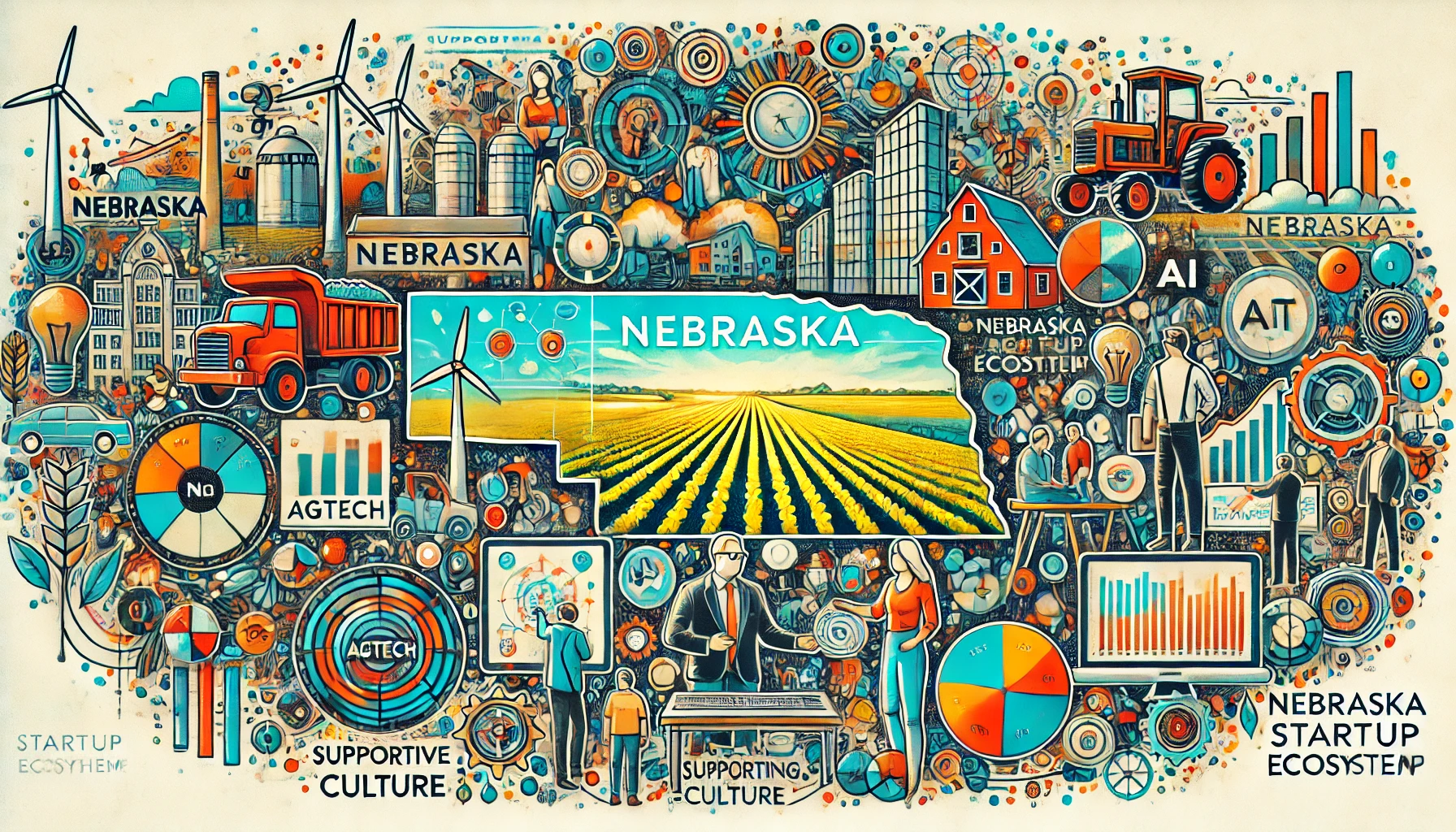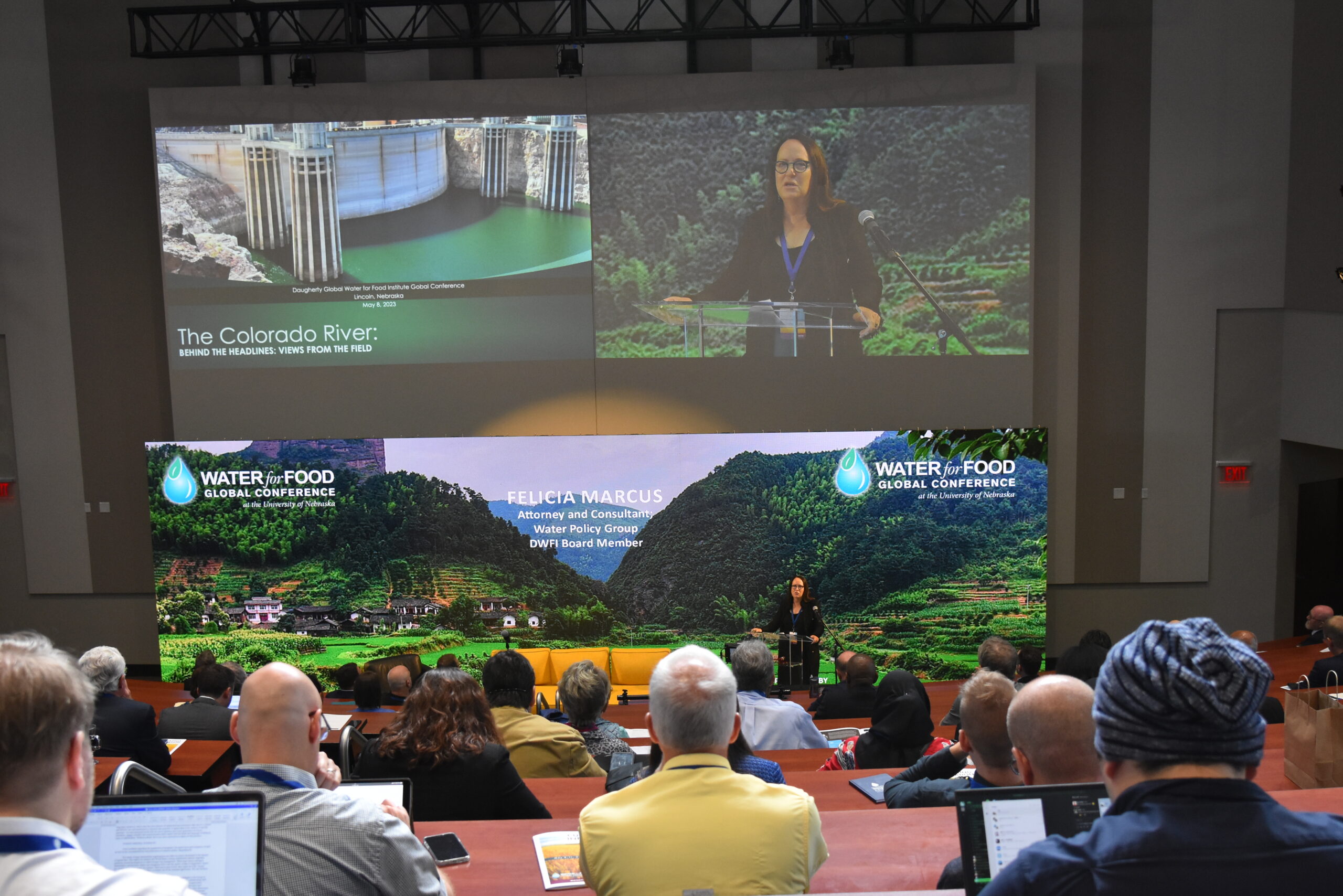After one year of asking founders, funders and startup community builders to answer the same five questions about Nebraska’s startup ecosystem, we used ChatGPT and Google Gemini to analyze the interviews for common themes. These are the takeaways that emerged.
1. How would you describe the startup culture in Nebraska?
- Collaborative and Supportive: The most frequent descriptors were “collaborative,” “supportive” and “welcoming.” Founders emphasized the strong sense of community, the willingness of experienced entrepreneurs to mentor newcomers and the genuine desire to see each other succeed. There’s a “Nebraska nice” element at play.
- Growing and Evolving: While acknowledging that the ecosystem is still developing compared to more mature tech hubs, founders consistently described it as rapidly growing and evolving. They noted increased activity, a growing number of startups and a rising awareness of the potential for innovation in the state.
- Humble and Hardworking: The culture is characterized by a “roll-up-your-sleeves” attitude, a strong work ethic and a focus on building real value. Founders appreciated the lack of pretense and the emphasis on substance over hype. They described the startup culture in Nebraska as more grounded and authentic than other areas.
- Nascent with Potential: Some founders acknowledged that the ecosystem is still relatively young and faces challenges, such as limited access to venture capital and a smaller talent pool compared to larger tech hubs. However, they were optimistic about its future potential.
2. How do you balance taking risks and making calculated decisions in pursuit of innovation?
- Data-Driven Decisions: Many emphasized the importance of using data, research and market analysis to inform their decisions. They strive to understand their customers, validate their assumptions and make calculated bets based on evidence.
- Calculated Risks: Founders acknowledged that risk-taking is inherent in entrepreneurship but emphasized the importance of taking calculated risks. They carefully weigh the potential rewards against the potential downsides and seek to mitigate risks whenever possible.
- Lean Startup Methodology: Many founders embrace lean startup principles, focusing on building minimum viable products (MVPs), getting early customer feedback and iterating based on real-world data.
- Trusting Intuition: While data is important, several founders also mentioned the role of intuition and gut feeling in decision-making. They rely on their experience and judgment to guide them, especially when facing uncertainty.
- Accepting Failure as a Learning Opportunity: Founders generally view failure as an inevitable part of the process and an opportunity to learn and grow. They strive to create a culture where it’s okay to make mistakes.
3. How do you define success and what metrics do you pay the most attention to?
- Customer Impact and Satisfaction: A strong emphasis was placed on creating products or services that genuinely benefit customers and solve their problems. Customer satisfaction, retention and positive feedback were cited as key indicators of success.
- Sustainable Growth and Profitability: While not the sole focus, building a sustainable and profitable business was seen as essential for long-term success. Revenue growth, profitability and customer lifetime value were commonly mentioned metrics.
- Community Impact: Many founders measured success in part by their contributions to the local community, such as job creation, economic development and supporting local initiatives.
- Personal Fulfillment: Achieving a sense of purpose, making a difference and enjoying the journey were also important aspects of success for many founders.
4. What are the top one or two challenges / opportunities Nebraska startups face?
- Access to Capital: Limited access to venture capital and early-stage funding compared to coastal hubs was frequently cited as a major challenge.
- Talent Attraction and Retention: While the talent pool is growing, attracting and retaining skilled employees, especially in specialized tech roles, can be difficult.
- Visibility and Recognition: Nebraska startups sometimes struggle to gain national visibility and recognition compared to companies in larger, more established tech ecosystems.
5. What is one emerging industry or technology that you believe will have a significant impact on the Nebraska startup ecosystem in the next few years?
- AgTech: AgTech was consistently cited as a major growth area, with opportunities in areas such as precision agriculture, farm management software, automation and biotechnology.
- Artificial Intelligence: Founders see AI as a transformative technology with applications across various industries, including agriculture, healthcare and logistics — all large industries in Nebraska.
- HealthTech: Innovations in telehealth, medical devices, remote patient monitoring and healthcare data analytics are seen as having significant potential in Nebraska.
- FinTech: Some founders identified FinTech as an emerging area, particularly in relation to insurance and agricultural lending.
- Supply Chain and Logistics Technology: Given Nebraska’s central location and transportation infrastructure, technologies that optimize supply chains and logistics are well-positioned for growth.



